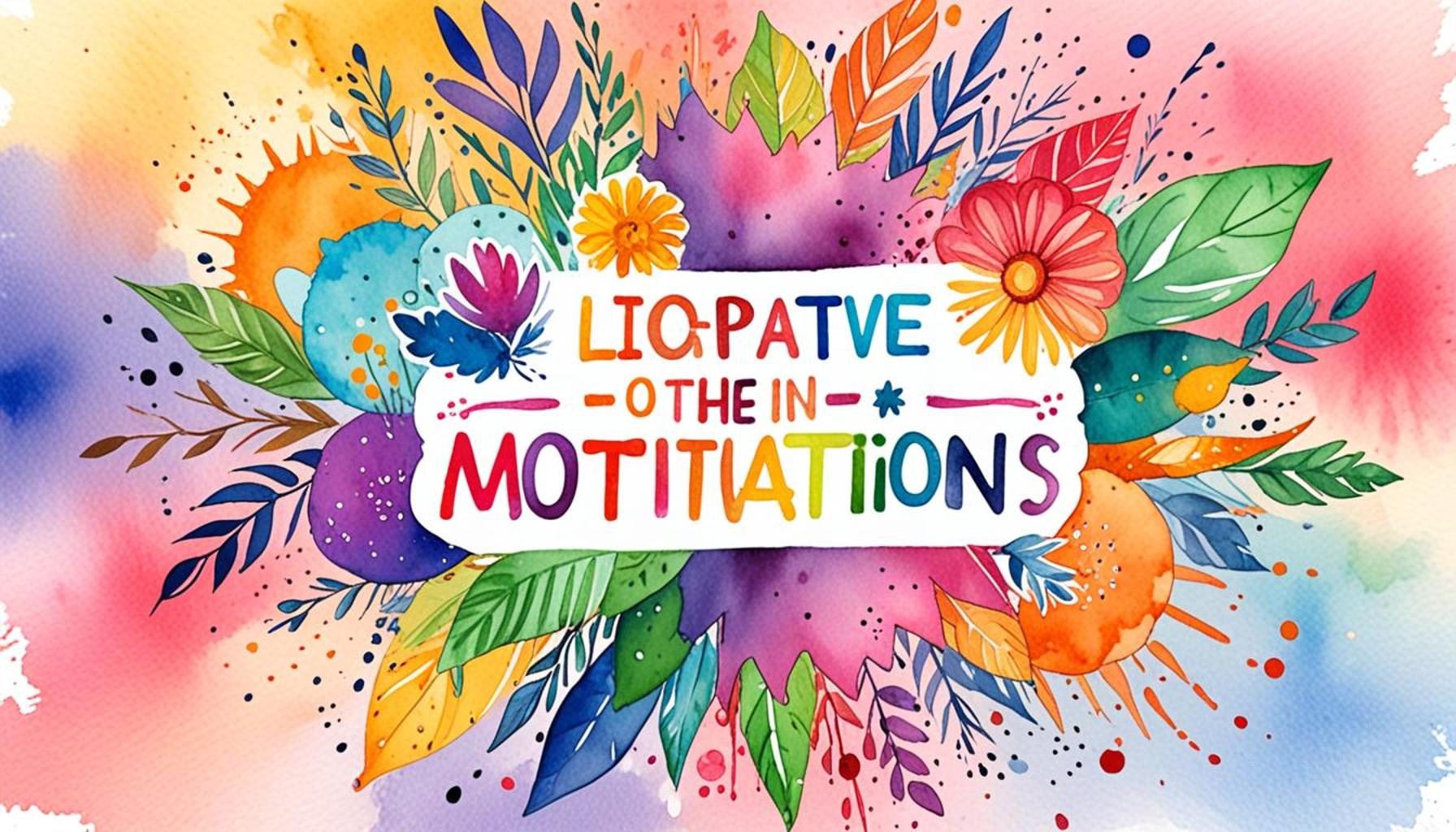Boost Adaptability Top Complementary Skills for Success

Introduction
In an ever-evolving world, the ability to adapt has become a crucial skill for personal and professional success. The concept of adaptability is closely linked to one’s mental approach, influencing how we navigate change and overcome challenges. Integrating complementary skills can significantly enhance our adaptability, making us more resilient in the face of uncertainty.
Understanding these skills is essential, as they empower individuals to respond effectively to shifting environments. Here are some key points to consider:
- Flexibility: The willingness to adjust one’s plans and ideas.
- Emotional Intelligence: The ability to manage one’s emotions and empathize with others.
- Problem-Solving: Approaching challenges with a solution-oriented mindset.
- Effective Communication: Conveying ideas clearly and actively listening to others.
- Continuous Learning: Embracing new information and skills to remain relevant.
This article will delve into the Top 5 complementary skills that bolster adaptability, providing insights on how you can cultivate these abilities for a more agile mindset. Prepare to discover practical strategies to enhance your adaptability and thrive in a constantly changing landscape.
YOU MAY ALSO LIKE: Read this other article
Top 5 Complementary Skills That Strengthen Adaptability
In today’s fast-paced world, the ability to adapt is more crucial than ever. As we navigate through various aspects of life—whether in our personal, academic, or professional domains—having complementary skills can enhance our adaptability. This article explores the top five skills that collectively help individuals become more adaptable, empowering them to thrive amidst change.

5. Critical Thinking
Critical thinking is often underestimated but is essential for adaptability. This skill involves analyzing situations, questioning assumptions, and evaluating evidence. When we encounter unexpected changes or challenges, critical thinking allows us to approach problems systematically rather than reactively. It encourages a thoughtful examination of issues before taking action, reducing the tendency to make rash decisions that could lead to adverse outcomes.
By fostering critical thinking, individuals can:
- Determine the best course of action based on factual evidence, which is especially crucial in decision-making scenarios.
- Make informed decisions, reducing the likelihood of error and increasing the chances of success.
- Explore innovative solutions when faced with obstacles, fostering a culture of creativity and innovation in personal and professional settings.
It is a foundational skill that empowers individuals to evaluate situations critically, making them more resilient and adaptable. Employers frequently seek out individuals with strong critical thinking abilities because they are perceived as problem-solvers and agents of change within an organization.
4. Communication Skills
Effective communication is vital for adaptability in both personal and professional environments. Communicating clearly helps in conveying ideas, emotions, or feedback, facilitating smoother transitions during periods of change. Miscommunication can lead to confusion, resistance, and frustration, significantly hampering adaptability. In team settings, good communication ensures that everyone is on the same page, reducing redundancies and minimizing misunderstandings.
Developing communication skills can result in:
- Improved teamwork and collaboration among group members, fostering a spirit of unity and shared commitment.
- Enhanced understanding and clarity during times of change, ensuring smooth transitions and minimizing disruptions.
- Stronger relationships that foster support in adapting to new circumstances, providing a safety net during uncertain times.
Investing in enhancing communication skills can lead not only to personal growth but also to a more harmonious work environment. The art of listening, too, plays a critical role in this process, as understanding others’ viewpoints becomes a crucial facet in navigating change efficiently.
3. Emotional Intelligence
Emotional intelligence (EI) is the ability to identify, understand, and manage emotions in ourselves and others. This skill plays a pivotal role in adaptability because it allows individuals to navigate their own reactions and the emotions of others during turbulent times. Those with high emotional intelligence are better equipped to manage stress and reduce emotional reactivity, which is essential when dealing with unexpected situations.
Having high emotional intelligence means you can:
- Stay calm and focused under pressure, maintaining a clear mind to make effective decisions.
- Empathize with others, helping to ease transitions and resolve conflicts amicably.
- Resolve conflicts amicably, making adaptability easier in a team and enhancing collective resilience.
By honing emotional intelligence, individuals can create a positive environment that promotes adaptability and resilience. This skill is not only beneficial in personal life but also significantly impacts professional relationships and organizational culture.
2. Problem-Solving Skills
Adaptability often hinges on one’s ability to solve problems effectively. When faced with new challenges, being a proficient problem-solver enables individuals to respond constructively rather than defensively. This skill encourages proactive behavior, ensuring that individuals are geared towards finding solutions rather than getting stuck in the difficulties. An adaptable individual thrives on challenges and views them as opportunities for growth and learning.
Strong problem-solving skills can enhance adaptability by:
- Facilitating a structured approach to troubleshooting, leading to efficient and effective resolutions.
- Encouraging creativity and analytic thinking, driving innovation and improvement.
- Promoting a mindset of resilience when obstacles arise, ensuring that setbacks are seen as temporary and surmountable.
In today’s complex world, honing problem-solving skills is paramount for anyone seeking to be adaptable. Organizations value employees who can navigate complexities with innovation and pragmatism, and this starts with an ability to tackle problems head-on.
1. Lifelong Learning
The number one skill that tremendously enhances adaptability is a commitment to lifelong learning. In an era where knowledge and technology evolve rapidly, being open to new information and experiences allows individuals to pivot and adjust to changing circumstances effectively. Lifelong learners are characterized by their curiosity and desire to seek out new knowledge continuously.
Engaging in lifelong learning entails:
- Continuously acquiring new skills and knowledge, keeping pace with advancements and progress.
- Staying updated with trends and changes in one’s field, ensuring relevance and competitiveness.
- Being open to feedback and new perspectives, welcoming growth and fostering adaptability.
This mindset enhances adaptability by ensuring individuals remain dynamic and prepared for whatever challenges may come their way. Embracing the journey of lifelong learning not only expands knowledge but also fosters a resilient and adaptable mentality. As Alvin Toffler, a renowned futurist, once said, “The illiterate of the 21st century will not be those who cannot read and write, but those who cannot learn, unlearn, and relearn.”
In conclusion, while various skills contribute to adaptability, focusing on these top five can significantly enhance one’s ability to navigate change successfully. As the world continues to evolve, developing these complementary skills will ensure that individuals are not only adaptable but also equipped to thrive amid uncertainty. Enhancing your adaptability is not just about surviving; it’s about thriving in a world of constant change.
| Category | Description |
|---|---|
| Cognitive Flexibility | The ability to adapt one’s thinking to new, changing, or unexpected events by recognizing alternative approaches and perspectives. This skill is crucial in enhancing problem-solving abilities and navigating complex situations. |
| Interpersonal Skills | Strong interpersonal skills facilitate effective communication and collaboration. They create a network of support, cultivating resilience through relationships that are essential for adapting to change. |
| Emotional Intelligence | Emotional intelligence encompasses self-awareness, self-regulation, motivation, empathy, and social skills, which are crucial for managing stress and responding flexibly in uncertain situations. |
| Creativity | Creativity enables the generation of innovative solutions and approaches, allowing individuals to tackle challenges with a fresh perspective. This adaptability fosters resilience in the face of change. |
YOU MAY ALSO LIKE: Read this other article
Frequently Asked Questions about Complementary Skills that Strengthen Adaptability
How do complementary skills enhance one’s adaptability?
Complementary skills, such as emotional intelligence, problem-solving, and critical thinking, play a vital role in enhancing adaptability. These skills enable individuals to navigate challenges and uncertainties more effectively by providing them with a toolkit of strategies to manage change and find creative solutions. In today’s fast-paced world, the ability to adapt is invaluable, and possessing a wide range of skills allows individuals to remain flexible and resilient in the face of unforeseen circumstances.
Which specific skills are considered complementary for boosting adaptability?
Some key complementary skills that significantly boost adaptability include communication skills, emotional intelligence, problem-solving abilities, and self-awareness. Communication skills enable individuals to express ideas clearly and collaborate with others, while emotional intelligence helps in understanding and managing emotions in stressful situations. Problem-solving abilities allow for the identification and resolution of issues, and self-awareness facilitates personal growth by recognizing one’s own strengths and areas for improvement.
Are complementary skills relevant only in professional settings?
While complementary skills are highly beneficial in professional environments, they are equally important in personal and social contexts. These skills enhance interpersonal relationships, improve conflict resolution, and aid in adapting to life’s various changes. For instance, effective communication and emotional intelligence can lead to stronger personal relationships, while problem-solving is essential for daily decision-making. Ultimately, these skills help individuals navigate both professional and personal challenges with ease.
How can one develop complementary skills to improve adaptability?
Developing complementary skills involves a combination of formal education, practical experience, and continuous learning. Engaging in workshops, online courses, and real-life practice can enhance one’s skill set. Seeking feedback from colleagues and mentors can provide valuable insights and guidance for improvement. Additionally, adopting a growth mindset and staying open to new experiences fosters the continuous development of these skills, thus reinforcing adaptability over time.
What role does adaptability play in career advancement?
Adaptability is a cornerstone for career advancement as it allows individuals to thrive in dynamic environments and seize new opportunities. In the constantly evolving job market, those who possess a diverse set of complementary skills are better equipped to handle transitions and take on new roles. Employers value adaptable employees who can adjust to change and contribute to the organization’s success through innovative thinking and collaboration. As such, enhancing adaptability can lead to increased job satisfaction and long-term professional growth.
CHECK OUT: Click here to explore more
Conclusion
In a rapidly changing world, the ability to adapt is no longer a mere advantage; it is a necessity. The article explored the top 5 complementary skills that bolster adaptability, highlighting their essential role in fostering a resilient mentalidade. These skills—emotional intelligence, critical thinking, communication, lifelong learning, and technological proficiency—are not only vital individually but also work synergistically to enhance one’s ability to navigate complex environments.
Emotional intelligence empowers individuals to understand and manage their emotions, fostering a stable mindset capable of handling change with ease. Critical thinking enables a deeper analysis of situations, providing a solid foundation for making informed decisions. Effective communication bridges gaps, ensuring clear and constructive dialogue even in the most uncertain circumstances. Lifelong learning promotes a continual growth mindset, necessary for adapting to new information and evolving landscapes. Finally, technological proficiency keeps individuals abreast of the latest advancements, allowing them to innovate rather than stagnate.
These complementary skills collectively form a robust toolkit for building adaptability. They facilitate not just survival but thriving in the face of change. In today’s dynamic environment, cultivating these skills is crucial for personal and professional success. The interconnectivity of these abilities underscores the importance of a comprehensive approach to skill development.
In essence, embracing these skills aligns with a modern mentalidade where adaptability is paramount. As industries evolve and life’s unpredictability persists, strengthening these complementary skills becomes a strategic imperative. For those keen on not only keeping pace but leading ahead, continuing to hone these capabilities will remain crucial, enabling a future anchored in innovation and resilience.


